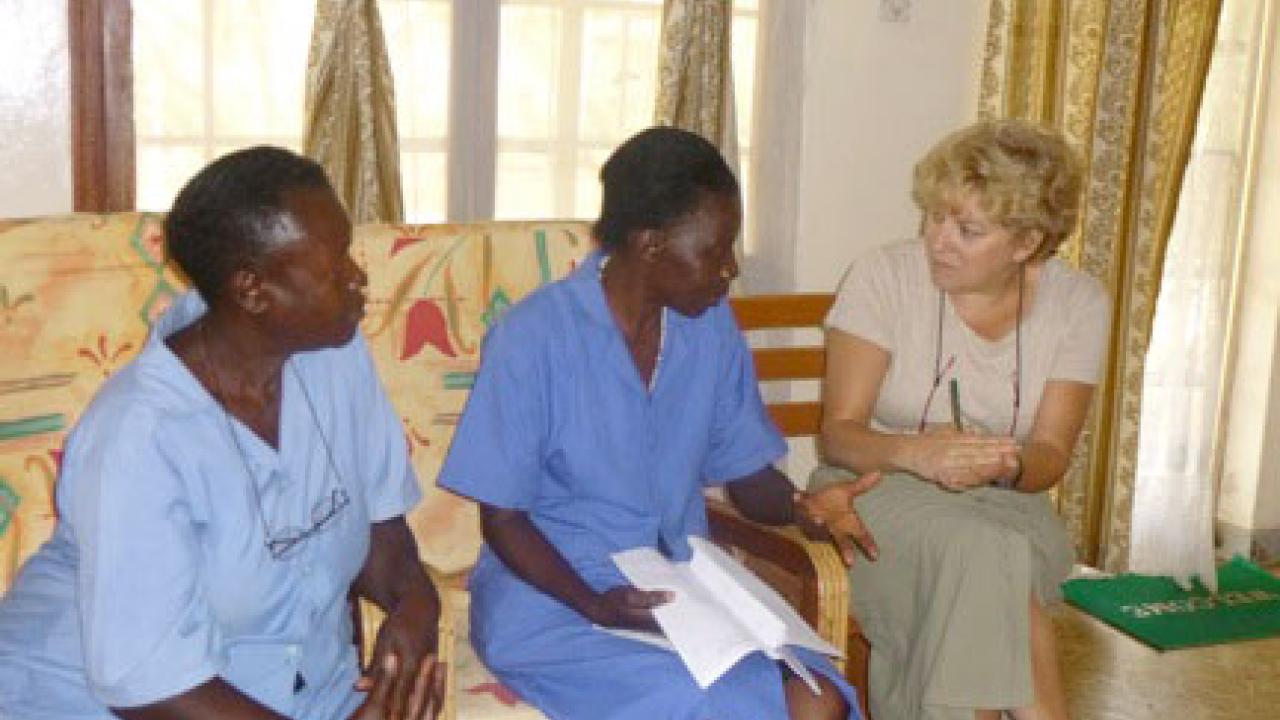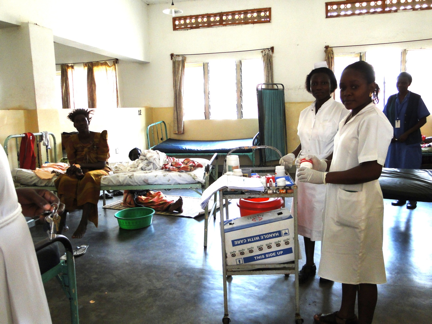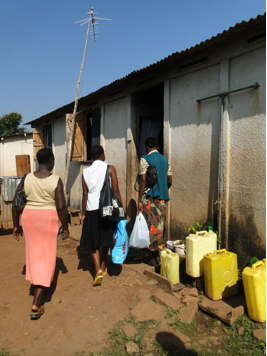Palliative Care: From NYC to Uganda

Dr. Randi Diamond, a faculty member of the New York-Presbyterian Hospital/Weill Cornell Medical Center’s Division of Geriatrics and Palliative Medicine and Director of the Liz Claiborne Center for Humanism in Medicine (LCCHM), is passionate about helping patients with chronic disease and life-threatening illnesses receive high-quality compassionate care from their health care professionals. Since the summer of 2013, Dr. Diamond has been helping develop palliative care services at Naggalama Hospital in Uganda, a country of approximately 36 million where less than half the population visits a health worker, and traditional healers are often the first port of call in illness. At a Palliative Care Consensus Workshop at Weill Cornell Medical College, Dr. Diamond met the former Director of Learning and Research at the African Palliative Care Association (APCA) in Uganda who offered to connect her with that organization. APCA which strives to adapt modern palliative care to African traditions, beliefs, cultures and settings connected Dr. Diamond, who offered to volunteer, with Naggalama Hospital in rural Uganda where the hospital administration was trying to develop a palliative care program.
Naggalama Hospital, a 100-bed facility serving a catchment area of just over 300,000 people, is a no-profit hospital in rural Uganda, with sparse furnishings and large wards. Patients must supply their own linens, and families must supply meals for the patients as well as providing daily care, such as feeding, bathing, and administering medications. In the Hospital’s HIV/AIDS clinic, averaging 180 patients per clinic day, there are only two primary providers (one doctor, one clinic officer). Yet, impressively, the hospital staff is committed to building palliative services in the hospital and community.

Although Uganda actually has several palliative care advocacy organizations and was the first county in Africa to recognize palliative care as an essential clinical service, trying to deliver palliative care remains a challenge especially in the rural areas. Naggalama Hospital’s new palliative care team (a nurse, nurse assistant, and spiritual leader) is primarily focused on home based care; they travel on foot to reach patients in nearby villages, which significantly limits the number of visits possible per day. Of great concern to Dr. Diamond was the absence of needed medical supplies and pain management medications used frequently in the U.S. to provide palliative care. Without needed medical supplies, during a home visit by the palliative care team, perhaps a prayer led by the team’s spiritual leader was often all a patient could receive.
Dr. Diamond remarks: “After every visit I am moved by the interest of the staff to provide palliative care to their patients. There is certainly a great need for palliative care in a country where most patients with a terminal illness present too late for curative treatment. Yet, in addition to the shortage of supplies, there is also a scarcity of communication between staff and patients which might help address some of the suffering.” Despite several deaths occurring at Naggalama Hospital each week, during her visits in Uganda, Dr. Diamond saw very few hospitalized patients who were approaching end-of-life. She said, “It occurs to me that the staff does not see dying as part of palliative care. For them, palliative care is more about outreach to patients isolated at home.”

In addition to the general shortage of medical staff, there is a shortage of health providers trained in palliative care and a general lack of understanding of palliative care among the lay public. Dr. Diamond is committed to remaining involved and sharing her knowledge with the staff and the patients at Naggalama Hospital on a regular basis. Each year, Dr. Diamond hopes to teach them more about pain assessment, non-pain symptom management and communication with terminally ill patients.
When visiting Uganda Dr. Diamond records her reflections each day in a journal. After a day of making home visits with the Naggalama palliative care team, she wrote: “Struggling today with whether what we are doing here is really of any help, or would our time and energy be better spent on efforts to change the system? Probably. But in the meantime, I hope we can make a few people’s days a bit better. It’s hard though when you really have no means of improving anything about their lives except letting them share their woes and their hopes – which they amazingly still have.…”
Dr. Diamond has shared her experience with New York-Presbyterian Hospital/Weill Cornell Medical Center’s staff at a Liz Claiborne for Humanism in Medicine Geriatric Grand Rounds. The presentation includes many moving and powerful photographs of the patients she cared for.
